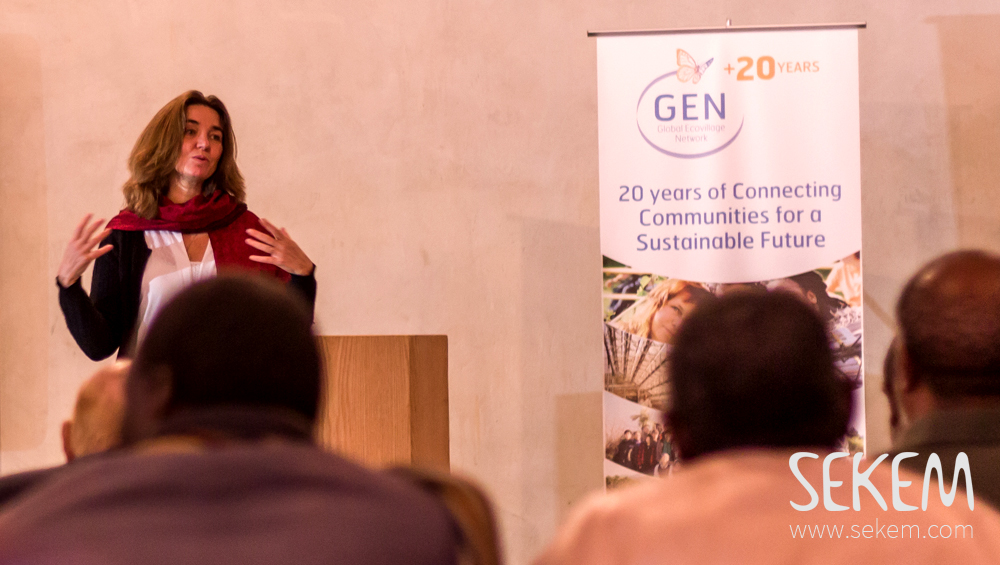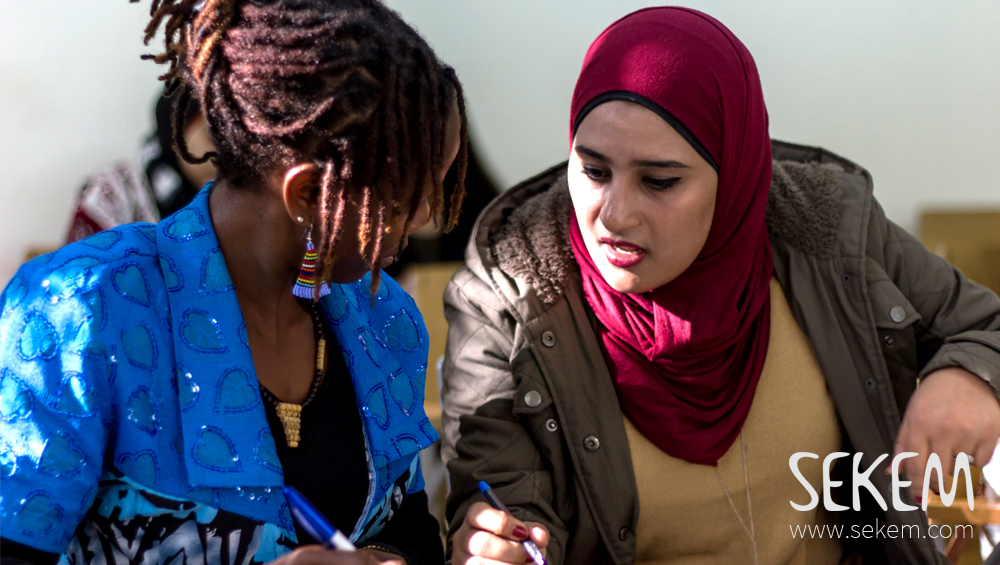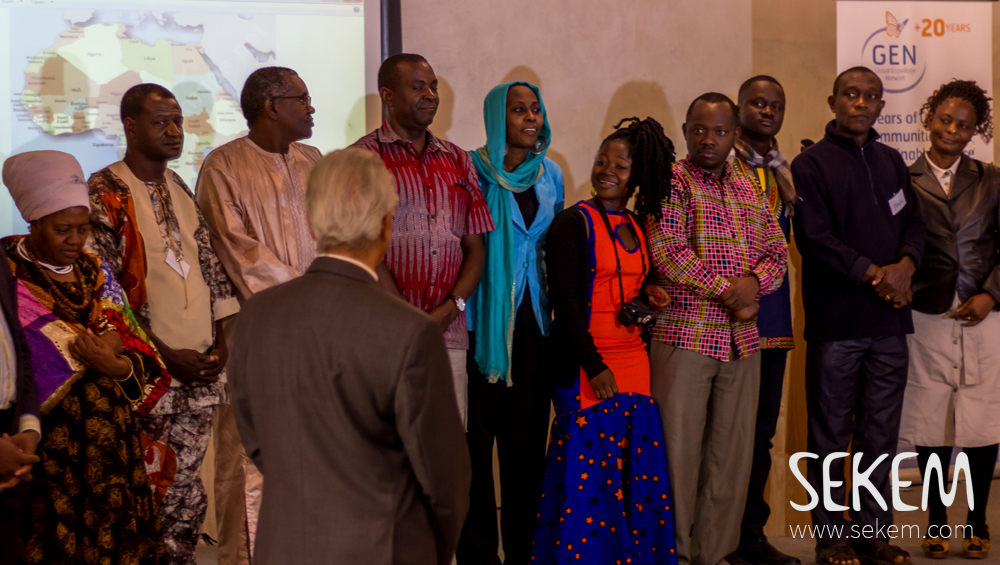There is also a bright side on the challenging path to the future – in a special event in SEKEM, the Global Ecovillage Network Africa (GEN Africa) recently celebrated its collaboration with SEKEM, which has been determined in 2012, and the 20th anniversary of the international initiative.
In regards of maintaining Sustainable Development and revealing the roadmap of Social Innovation, on December 20, a workshop was organized by Heliopolis University for Sustainable Development (HU) together with representatives from GEN Africa, who visited SEKEM for four days.
Dr. Ibrahim Abouleish: “We got a message from heaven when Kosha Joubert visited us.”
Dr. Ibrahim Abouleish opened the event by an inspiring speech and warmly introduced Kosha Joubert, the founder and president of the international Global Ecovillage Network (GEN). “When the little angel Kosha Joubert visited us, we felt like she was send from heaven to encourage us to support our African friends more and more”, Dr. Ibrahim remarked.
Kosha Joubert, who grew up in South Africa, inaugurated her speech by explaining her motives, which made her set up the GEN. “I was born in a community that was torn apart by racism. I developed the strong wish to build bridges between different cultures to prevent the world form this radicalism”, she said. The foundation of the GEN was very much inspirited by SEKEM and its holistic vision. “SEKEM is the light and we are going to carry this light to all our different communities”, Kosha Joubert revealed. Hence, the GEN was established in 1995 with the target to build communities that are able to create innovative projects without fighting the existing systems. Until today the Global Ecovillage Network initiative is connecting more than 10,000 ecovillages around the world in five big regional networks; one of them is GEN Africa.

“It has been three years now since activists from GEN Africa came together in SEKEM for a symposium”, Dr. Ibrahim stated. During this meeting, a strategy has been developed by exchanging best practice examples of ecovillages. Like this, the African initiative of the GEN was founded in SEKEM in 2012 and it is coordinated now by Gihan Hamza from the HU staff.
Social Innovation to Develop Communities
The representatives that visited SEKEM and contributed to the workshop, came from many different African countries but are all unified by the GEN. They presented examples of Social Innovation and clarified the definition of an ecovillage. “True sustainability and an economy of love, can only be reached by educating the people and the communities”, one of the participants noted. Thus, the Ecovillage Design Education Program (EDE) was established in Gambia, where eleven ecovillages are located. Through schools and vocational training centers, local citizens learn to teach theoretical topics by local fieldwork, practical exercises and games, based on the so-called “Living and Learning” principles of the GEN.
Obviously, the main pillar of an ecovillage is defined by engaging the youth to environmental conservation and living in harmony with nature. “The field is our classroom and our research room. We use everything on the land, even the weed”, the representative of Ghana Permaculture Institute said.
“Empowering one woman, will empower the whole community.”
This is also what the Heliopolis University is fostering: “Education, research and innovation are the three threads of the DNA of Heliopolis University”, Dr. Mohamed Wagih, Research and Innovation Advisor at HU, remarked. “And Social Innovation, that connects those three, is the driving force, which is able to change and develop societies all over the world.” It was emphasized that Social Innovation can be considered as the combination of actions and practices of people in various social areas that aim to tackle one of the societal challenges and demands in regards to the four dimensions of Sustainable Development: economy, ecology, societal and cultural life. Hence, also the women’s empowerment principles are integrated into the projects of GEN Africa, for instance in Namibia where projects are dedicated to women and supervised by women. “Empowering one woman, will empower the whole community”, the representative of the Green Club Project in Ethiopia tells, when reporting its achievements.

With a cooperative spirit, students from HU, SEKEM co-workers and the African SEKEM friends attended the workshop with the focus to Social Innovation and shared their points of views and experiences. There was a great spirit of inspirations and trust in these days in SEKEM. Kosha Joubert: “A fair and sustainable world is not only possible; it is on its way. In quiet moments, we can clearly become aware of it.”
Noha Hussein
Learn more about the Global Ecovillage Network

